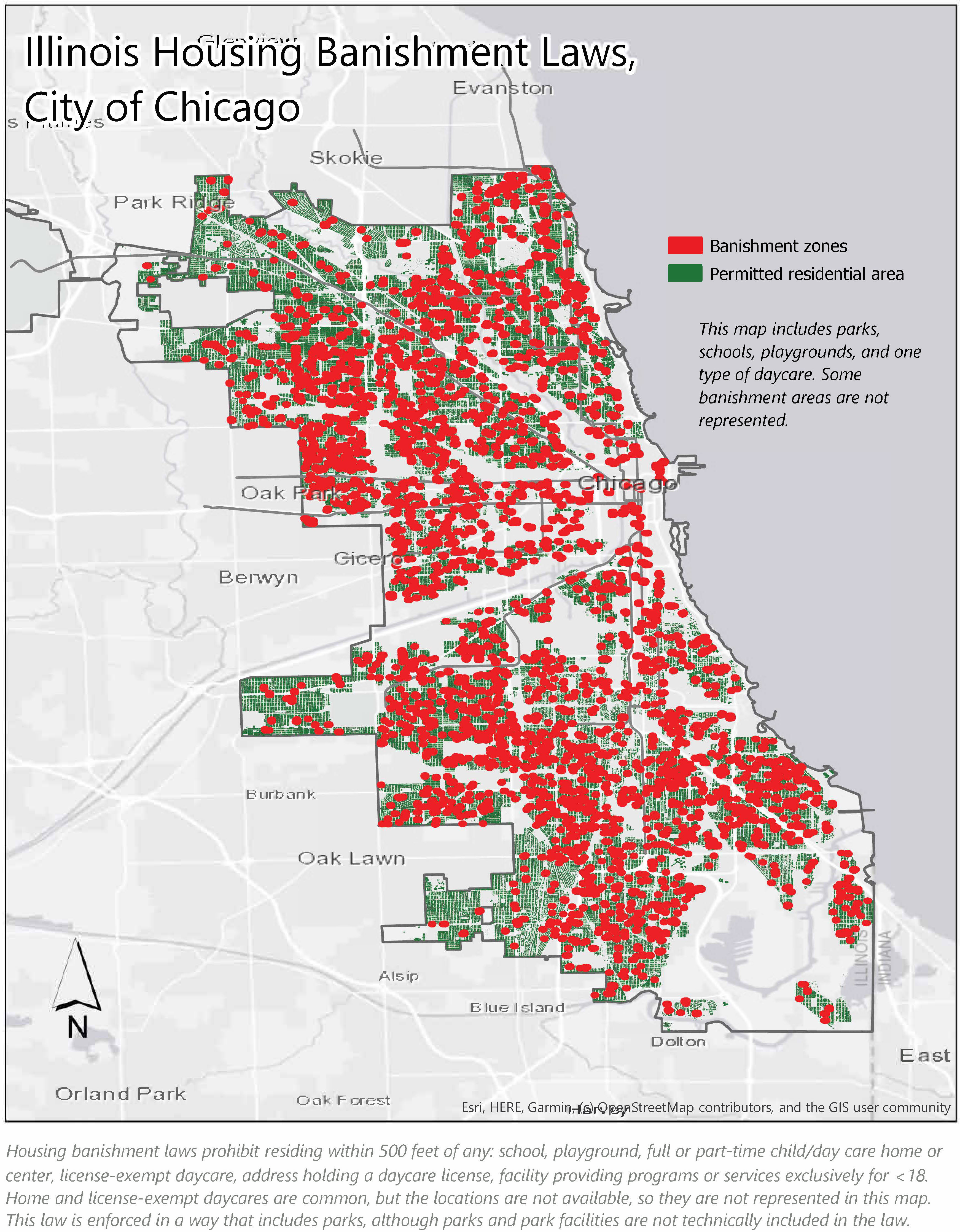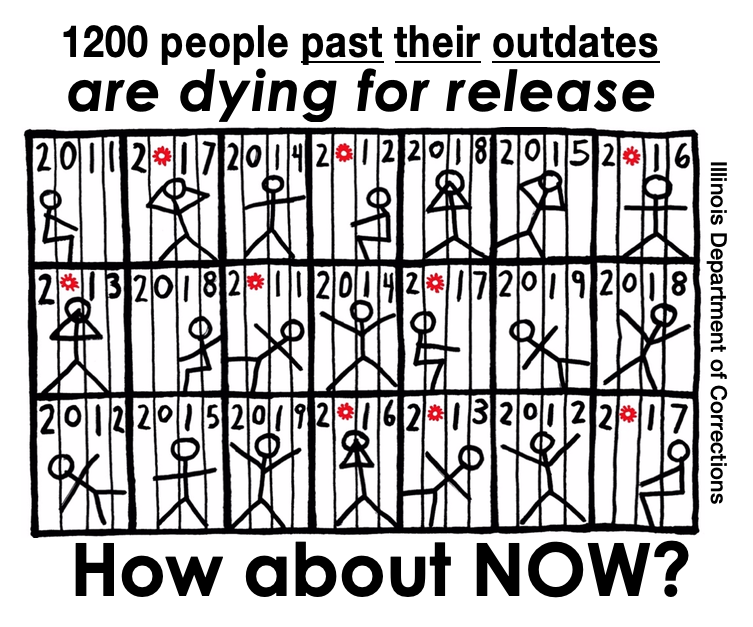Illinois prison crisis due to residency restrictions
For the past 15 years, the IDOC has had to keep people stuck in Illinois prisons past their release dates simply because they were homeless
How about now? Would now work? How's now?
- Illinois prison crisis due to residency restrictions
-
Drawings of being stuck in prison past your release date
-
Audio of Romeo
Q: When to release people?
A: How about now?
People in prison can't find housing to be released to because residency restrictions banish people from nearly all housing
Residency restrictions prohibit people with convictions from establishing residence in the vast majority of housing in Chicago or any city or town. This produces an acute housing shortage for thousands of people inside and outside prison. Everyone in Illinois who serves prison time is given a mandated period of superivision at the end of their sentence by the Parole Department of the IDOC. This is called Mandatory Supervised Release (MSR). A person has to have housing in order to serve their MSR.
Even people with safe, welcome homes can't live in them
There is plenty of housing for everyone. Most people can find 1, 2, 10, or 100 addresses where they can live. The problem is that none of them are approved because of residency restrictions. When people can't get approved housing, they have had to stay in prison after their release date. Worse yet, they were given a "parole violation" for "insufficient housing." They were violated simply for having no home. And they had no home because the state made all their housing options illegal.
These laws are invisible to most, but they have created an entire class of people who will struggle to find or keep housing for the rest of their lives.
• For the past 15 years, some 1,400 people have been held in Illinois prisons past their release dates.
• Now the IDOC is under a permanent federal injunction to discharge them because they are past their release dates or they fully maxed out on their sentences.
• But where are they going? The root cause of the problem is still there: people are banished from housing.
• Officials have been scrambling to find places for people to live—when people already have places to live. They have been putting people in housing clusters and IDOC has been paying for the rent.
In fact, IDOC pays millions for this temporary housing.
• But this kicks the can down the road. Once people are off MSR supervision, they can just be homeless again. Communities oppose these clusters and so do the people housed there. They cause a terrible reentry dynamic.
How to help
Housing banishment laws drive thousands of Illinoisans into prolonged incarceration, homelessness, and lifelong housing instability. The Chicago 400 are people experiencing homelessness on registries who have led the way in speaking out against these laws. The Chicago 400 Alliance is an alliance of housing, reentry and victim advocates who have come together to reform these discredited policies and alleviate some of the entirely preventable harm they cause. These laws undermine public safety and critical public health measures, exposing people in prison, prison staff, and all their families, to increased risk of infection and transmission.
Please follow the campaign on Twitter @chicago400
Sign up at info@chicago400.net.


